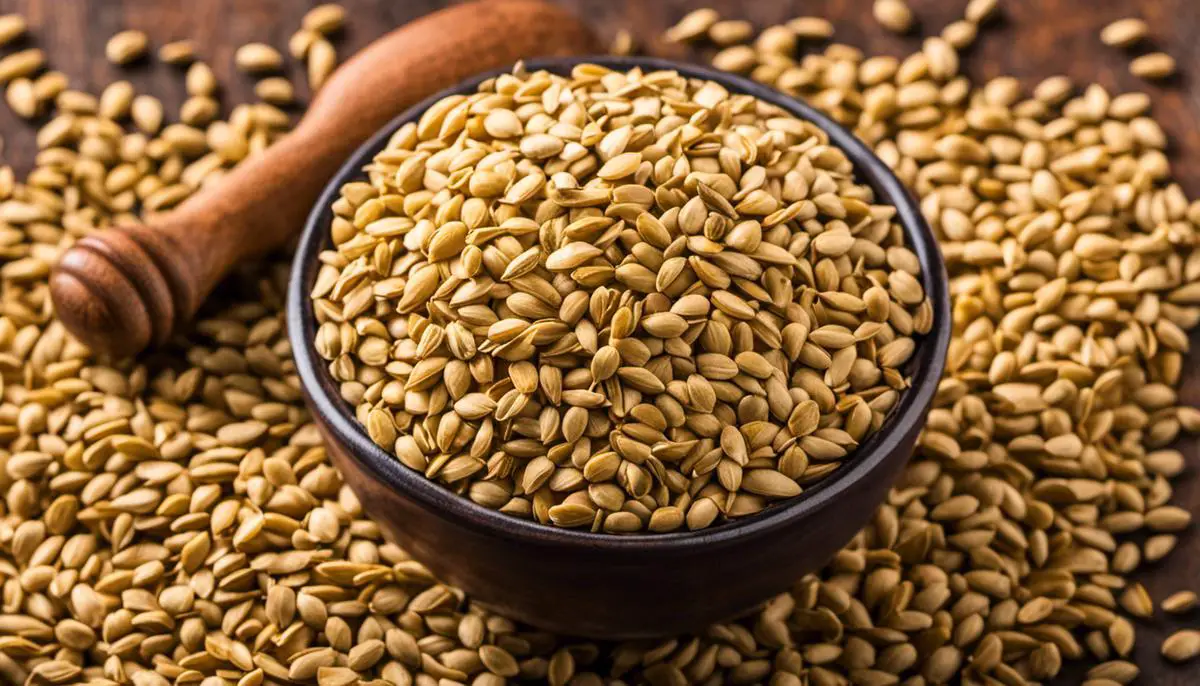The act of nursing a newborn involves great nuances that every mother is keen to master, a paramount one being ensuring an adequate supply of breast milk. Breast milk, recognized as a baby’s first elixir, consists of extensive essential nutrients, forging the initial stepping-stones of a baby’s immunity, development, and overall health. While the production of this nutrient powerhouse could be straightforward for some, others might face challenges in substantiating their milk supply due to reasons that span through various domains such as hormonal imbalance, stress, or medical conditions. Gaining insight into the working of specific supplements can shed light on how these ‘helpers’ can pitch in to enhance the quantity and quality of breast milk. This essay unravets the very significance of breast milk, the complications accompanying its deficiency, the role of supplements in magnifying its production, and a concise rundown on the most recommended, safe, and effective ones.
Understanding the Importance of Breast Milk
Understanding the Importance of Breast Milk
Breast milk is often considered the best food for infants. It contains the perfect balance of nutrients that baby needs for optimal growth and development. Further, it is loaded with antibodies and immunities that aid the newborn’s immune system and protects them from harmful bacteria and viruses.
The constituents of breast milk include proteins, fats, sugars, and cells that fight infection. It also contains vitamins and minerals, digestive enzymes, hormones, and amino acids. The composition of breast milk changes as the baby grows to meet their changing nutritional needs. Its deficiency may lead to potential complications like malnutrition or slowed growth, weakened immunity and increased risk of certain infections.
Nutrients in Breast Milk
The nutrient profile of breast milk is unique. It contains appropriate amounts of carbohydrates, proteins, and fats, as well as key elements like calcium and iron. One of its prominent ingredients, lactose, helps in calcium absorption and promotes intestinal health.
Proteins such as whey and casein are also present in large quantities. These proteins are easy to digest and have infection-fighting properties. Fats present in breast milk provide essential energy and aid in brain development.
Breast milk is loaded with vitamins A, D, and B12 that play an essential role in bone health, cellular function, and brain development. It also contains necessary minerals like calcium and iron in a form that’s easy to absorb.
It’s noteworthy that mothers pass on antibodies to their babies through breast milk. These antibodies help equip the infant’s still-developing immune system to fight off infections and diseases.
Boosting Breast Milk Production with Supplements
For a variety of reasons, such as stress, illness, or particular medications, some women may find it challenging to produce a sufficient amount of breast milk. Fortunately, modifications to diet and lifestyle can significantly aid in enhancing milk production.
Notably, Fenugreek has a worldwide reputation as a galactagogue – a substance that promotes milk production. Other beneficial herbs include fennel, blessed thistle, and alfalfa, which are believed to stimulate the production of breast milk.
Alongside these, maintaining a balanced diet and staying well hydrated is essential. Consuming foods such as oats, garlic, and spinach is advisable, as they boast a wealth of nutrients crucial for lactation.
Dietary supplements like Brewer’s yeast and flaxseeds are also often suggested. Brewer’s yeast, a fungus used in beer production and baking, may stimulate milk production, while flaxseeds are rich in omega-3 and omega-6 fatty acids, beneficial for infant brain development and thought to increase milk supply.
Before starting any new supplement regimen, consult with a healthcare professional. Keep in mind that what works for one person may not work for everyone. Regular breastfeeding or pumping can help stimulate more milk production. But remember, increasing breast milk often involves the right balance of proper nutrition, stress management, and rest. While supplements can be helpful, they should not be the sole strategy to boost production.

Challenges in Breast Milk Production
Understanding the Challenges in Breast Milk Production
The production of breast milk is essential in nourishing newborns and infants, yet many mothers struggle with generating an adequate supply. Common issues impacting milk production include hormonal imbalances, certain medical conditions, conditions like improper latching or a lack of glandular tissue, advanced maternal age, and the use of specific medications.
Contributing to these problems could be hormonal imbalances, involving prolactin (the hormone directly responsible for milk production), or thyroid issues. Any emotional or physical stress during the postnatal period, as well as dietary deficiencies, can hinder the natural prolactin surge required for ideal milk production.
More direct impairments to milk production can occur due to conditions like breast surgery or damage to the milk ducts. Other health issues, such as polycystic ovary syndrome (PCOS), diabetes, or various endocrine disorders, can also inhibit effective milk production.
Furthermore, infant-related factors such as the baby’s feeding pattern and latching skills greatly influence milk supply. An incorrect latch or inefficient feeding can lead to a lower milk supply since production is, to some extent, demand-driven.
Boosting Breast Milk Production with Supplements
Overcoming the challenges of low breast milk production may be eased by certain supplements geared toward increasing lactation. These supplements, scientifically known as galactagogues, can be exceptionally beneficial when taken under the guidance of a healthcare professional.
- Fenugreek: This potent galactagogue is widely known and used to enhance milk supply in many women, as supported by various studies.
- Blessed Thistle: Often teamed up with Fenugreek, Blessed Thistle is a commonly recommended herb for breastfeeding mothers seeking to improve their milk supply.
- Brewers Yeast: This beer-making fungus is chock-full of B vitamins, iron, protein, selenium, and other minerals that may aid in boosting milk production.
- Lactation Cookies: Going beyond their delightful taste, these cookies are packed with milk-enhancing ingredients such as oats, flaxseed meal, and brewer’s yeast.
- Moringa: Loaded with essential nutrients and vitamins, this plant provides numerous benefits to breastfeeding mothers.
- Goat’s Rue: Historically used in Western herbal medicine, this plant is known to facilitate increased milk supply in nursing mothers.
Bear in mind that while these supplements may assist in boosting milk production, they are not a replacement for good nutrition and proper hydration. Emphasize a healthy diet, adequate hydration, and consistent nursing or pumping to invigorate milk production. Seek advice from a lactation consultant or healthcare provider for personalized guidance and support.

Role of Supplements in Enhancing Breast Milk Production
A Closer Look at Breast Milk Production
Breast milk production, or lactation, is a complex process that relies on a variety of factors, namely the mother’s health, feeding habits, and certain dietary components. Hormonal reactions, primarily through the function of prolactin, stimulate the mammary glands to produce milk. The market is saturated with products that purport to ameliorate milk supply–while many of these are supported by anecdotal experiences or traditional applications, only a select few are backed by rigorous scientific research.
Nutritional Supplements for Lactation Enhancement
Numerous nutritional supplements are claimed to boost milk supply. One that stands out is fenugreek. Studies show that fenugreek, a plant used as a spice in cooking, can significantly increase milk supply in as soon as 24 to 72 hours after oral intake. This is believed to be due to the plant’s rich content of phytoestrogens, substances that mimic the effect of estrogen and increase stimulation of the mammary glands.
Brewer’s yeast, another popular choice, has shown potential for enhancing lactation. As a rich source of B-vitamins, proteins, and other essential minerals, it’s thought to boost energy levels and potentially milk supply, though more research is needed to confirm this.
Herbal Supplements and Breast Milk Production
Other much-lauded options are herbal supplements. Generally, these were used traditionally and have since gained attention in modern practice. The most common ones include blessed thistle, fennel seeds, and milk thistle.
Blessed thistle, in particular, is known for its use in Medieval Europe to stimulate milk flow and is often combined with fenugreek. The mechanism behind its effectiveness is still unknown, but it remains as a popular choice for many breastfeeding mothers.
Fennel seeds also have a long history of use as a galactagogue. Studies suggest that they work by acting on the smooth muscles that propel the milk toward the nipple, though more research is needed to further understand this function.
Milk Thistle, also known as Silybum marianum, has been used medicinally for over 2000 years. A few preliminary studies suggest that it may stimulate the production of prolactin, the hormone that controls milk synthesis.
Importance of Consultation Before Taking Supplements
Though the mentioned supplements have been in use for many years with positive feedback from numerous mothers, it should be noted that results can vary. A supplement that works well for one may not necessarily induce the same effects on another. Therefore, it is essential to consult with a healthcare provider before starting any new supplement regime. They can guide about the suitability of these supplements, the recommended dosage, potential side effects, and interactions with other medications.
Potential Risks and Side Effects
Although generally regarded as safe, the aforementioned supplements can cause adverse effects in some users. These may include GI upset, diarrhea, hypoglycemia (especially with large doses of fenugreek), allergies, and interactions with certain medications. Therefore, even though these supplements are easily accessible and often considered natural, they should not be consumed haphazardly without proper knowledge and guidance.
Role of Proper Nutrition in Boosting Milk Supply
Beyond these supplements, maintaining proper maternal nutrition also plays a crucial role in ensuring adequate milk production. An adequate fluid intake, a diet rich in protein, whole grains, fruits, and vegetables can significantly contribute to the quality and quantity of breast milk produced. Moreover, breastfeeding itself as often as the infant demands can help stimulate the breasts to produce more milk, further enhancing milk production capacity.
Natural Options for Enhancing Breast Milk Production
Increasing one’s breast milk supply can be achieved through various natural methods, including the use of nutritional supplements, herbs, lactation teas, and cookies. These products contain a mixture of beneficial herbs and supplements that can stimulate milk production. However, keep in mind that the effectiveness of these methods can significantly differ from one individual to another.

Safe and Effective Supplements for Breast Milk Increase
Using Fenugreek: A Time-Tested Herbal Solution for Increasing Milk Supply
One well-recognized, natural supplement for boosting breast milk supply is Fenugreek. This Mediterranean herb can be consumed in seed form, within meals, as a tea, or as a capsule supplement. The belief behind its efficacy is its ability to stimulate sweat production — since breast milk is essentially a modified form of sweat, fenugreek is thought to encourage milk production. The recommended dosage for a nursing mother is between 3500-6100 mg of fenugreek taken three times daily. Nevertheless, some individuals may experience mild stomach upset, and those allergic to peanuts or chickpeas should avoid fenugreek due to potential cross-reactivity.
Blessed Thistle: The Partner of Fenugreek
Blessed thistle is often taken together with fenugreek to increase milk supply. This plant native to the Mediterranean region contains an essential oil called cnicin that stimulates digestion and the reproductive systems, potentially aiding in breast milk production. To achieve the desired effect, you can take around 1000 mg of blessed thistle three times a day. Some mothers might experience an upset stomach or vomiting, and it should not be used by those allergic to aster plants.
Fennel Seeds: Flavorful Booster of Milk Supply
Fennel seeds, commonly used as a flavor-enhancer in cooking, are rich in phytoestrogens, which are believed to promote breast growth and milk supply. It can be consumed as tea, added to meals or taken as a supplement, with a general recommendation being 1-2 teaspoons of seeds per day. It’s generally safe but should be used cautiously in women with hormone-sensitive conditions like breast cancer or endometriosis. In rare cases, it might affect the menstrual cycle.
Brewer’s Yeast: Nutrient-rich Supplement
A by-product of beer-making, brewer’s yeast is high in B-vitamins, iron, protein, chromium, and selenium, thus providing essential nutrients while potentially boosting milk supply. Usually, it is added to foods, like cookies or smoothies, in powdered form. Although generally safe, it may cause unwanted side effects such as bloating, gas, or migraines, and should be avoided by mothers with yeast allergies or those prone to yeast infections.
Goat’s Rue: The Powerful Galactagogue
Goat’s Rue is a powerful galactagogue, a substance that increases milk supply, and was traditionally used by French farmers to increase milk production in their dairy animals. Available in capsules, teas, or tinctures, the dosage varies depending on the form but generally, 1-2 capsules, 4-6 times a day is recommended. Some people might experience a drop in blood sugar or feel mildly lethargic so monitoring its effects is important.
Remember, while these supplements have proven effective for some women, it’s vital that you speak with a healthcare professional before starting any new supplement regimen. They will be able to provide personalized advice based on your health history, and can monitor your use for any potential complications or interactions.

Quite crucially, the quality of life you gift your child largely begins on your nursing journey. The battle against feeding issues linked to insufficient breast milk supply need not be a solo fight, thanks to the plethora of safe and effective supplements that stand in support. Ranging from mundane kitchen spices to formulated lactation supplements, these troops strive to ameliorate milk production, addressing its deficiency that might have deterred your baby’s growth and immunity earlier. Garnering a thorough understanding of these supplements, their impacts and appropriate consumption methods, coupled with vigilance on any potential side effects, can indeed bolster your breastfeeding experience. Thus, the route to fulfilling your motherhood by ensuring the best for your child is significantly smoothed.
